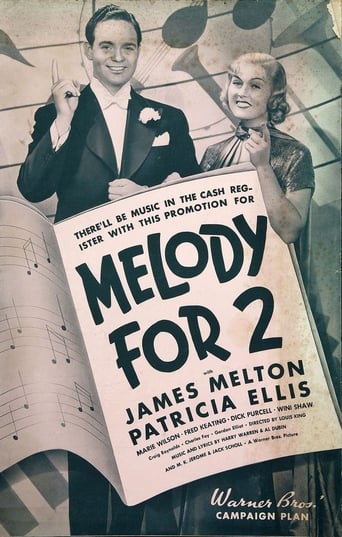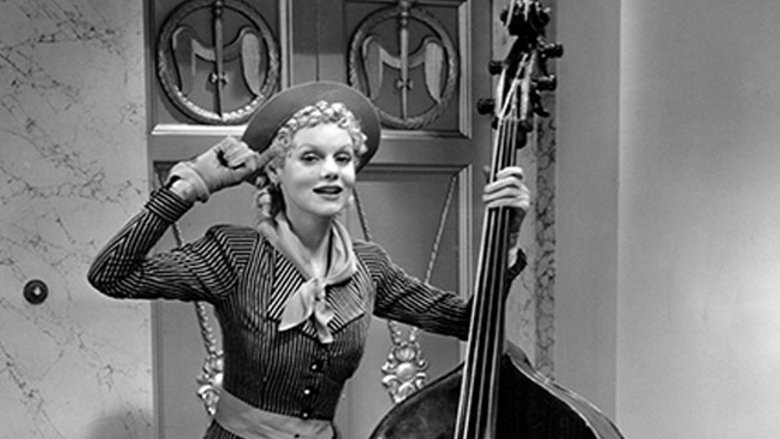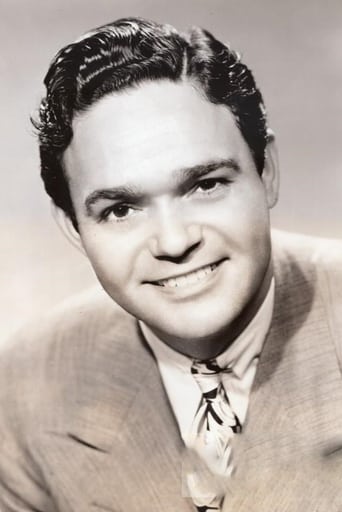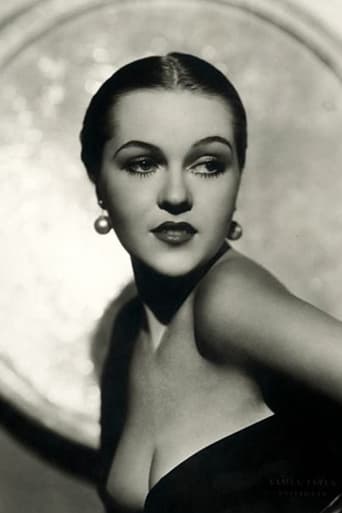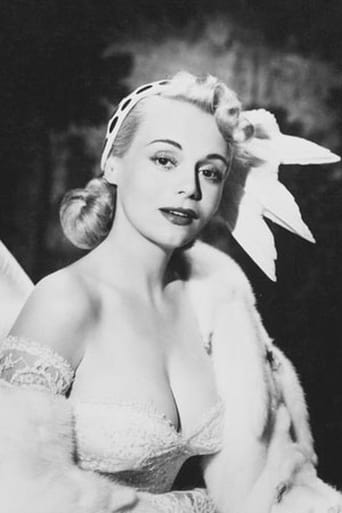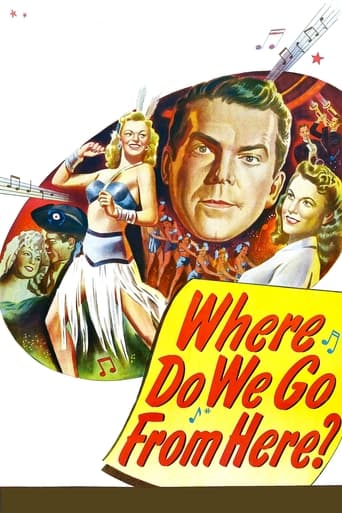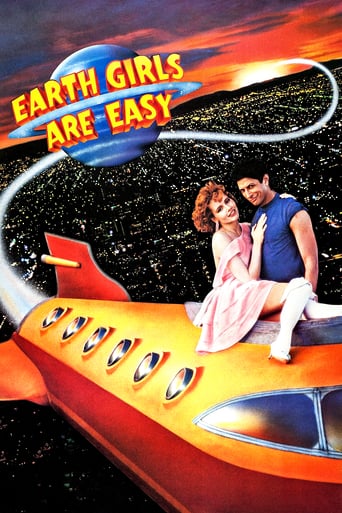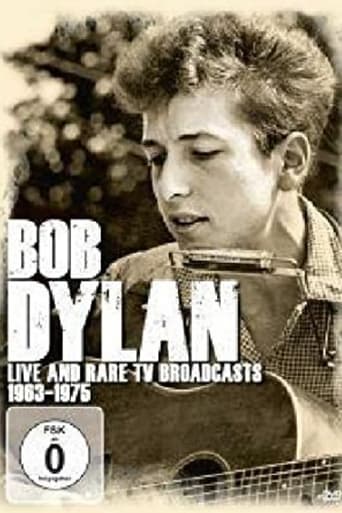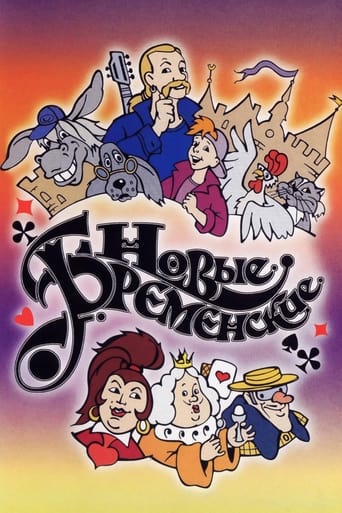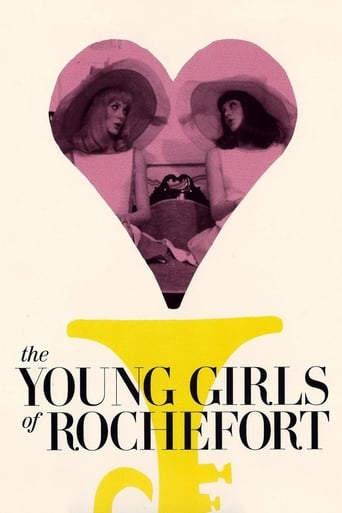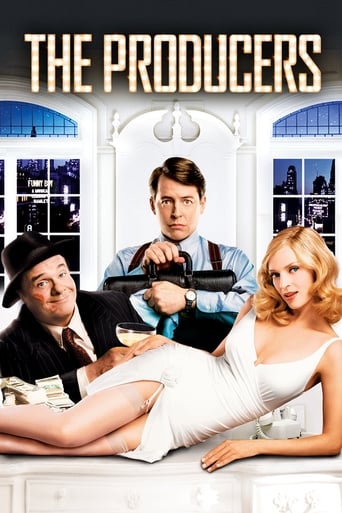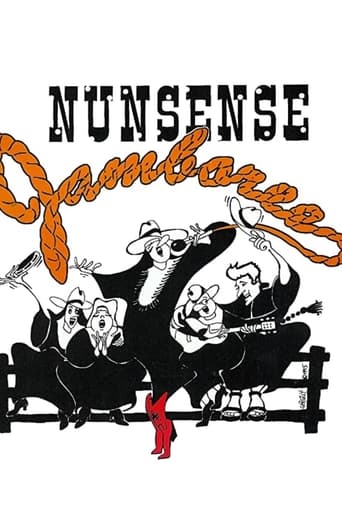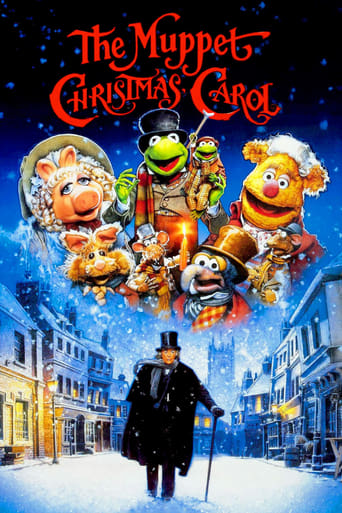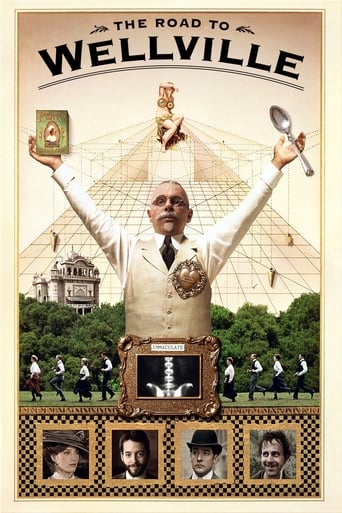Melody for Two (1937)
A singing bandleader signs on with an all-girls band.
Watch Trailer
Free Trial Channels
Cast


Similar titles
Reviews
Plot so thin, it passes unnoticed.
hyped garbage
I gave this film a 9 out of 10, because it was exactly what I expected it to be.
if their story seems completely bonkers, almost like a feverish work of fiction, you ain't heard nothing yet.
James Melton and Patricia Ellis star in "Melody for Two," a second feature from 1937. Running about an hour, it's packed with music, notably the song "September in the Rain," which had its debut in this film.Melton plays bandleader Tod Weaver whose band has an exciting new contract with a large nightclub. Right before the band opens, Weaver has a fight with songwriter Bill Hallam and fires him. The songwriter leaves, taking his music with him. This leaves the band with nothing.The band's singer, Camille Casey (Ellis) convinces Hallam to let the band use his music for a fee but under another name. Hallam goes along, and the band is a big hit. Hallam, however, tells a gossip columnist what he did and, as far as Weaver is concerned, makes him look foolish. In another fit of temper, Weaver quits the orchestra and is blackballed from future employment. Camille becomes the band leader.Feeling sorry for Tod, Camille haggles with the NBA (National Broadcasting Association) and gets a contract for Tod with a small club. Tod's manager decides they need a gimmick, so they hire blond women for the band. They're not a success until a janitor (Eddie "Rochester" Anderson) tells them they're old-fashioned and need some heat -- in the form of swing music.Melton has a kind of scrappy delivery and though pleasant looking, wasn't a leading man of the Nelson Eddy variety. He had, however, a beautiful Irish tenor that can be heard in the title song, "September in the Rain," and "Macushula," while Ellis sings "An Excuse for Dancing" and "A Flat in Manhattan." Melton became an opera star shortly after this film and worked at the Metropolitan Opera. Despite the lyric timbre of his voice, he did Pinkerton in "Madame Butterfly," and several other heavy-ish roles, though his major role for the Met was one very suited to him, Tamino in "The Magic Flute." In those days, it seems like lyric voices took on meatier roles. He was a perfect Mozart tenor, though I'm unclear what else he did besides Tamino.Not really recommended, but Melton made other films, and if you get a chance to hear him, do so.
MELODY FOR TWO (Warner Brothers, 1937), directed by Louis King, is a 60 minute musical programmer starring James Melton in his third and final leading role for the studio. Following STARS OVER Broadway (1935) and SING ME A LOVE SONG (1936). Melton, an accomplished opera singer, was one of those talents who failed to register as a screen personality. After the release of MELODY FOR TWO, it was three strikes and out. Melton plays Tod Weaver, a band-leader working at the Sky Terrace, "America's most exclusive club" of New York City. Gale Starr (Patricia Ellis), his girlfriend, performs as the band's vocalist. Because his contract arrangement has run out two months ago and not been renewed, Mel Lynch (Dick Purcell), Tod's arranger whose real interest is Gale, insists on a new contract of $500 a week and a bonus of $1,000. Tod refuses and has Mel fired. William Hallam (Craig Reynolds), the night club manager, unhappy with that decision, feels his club could face financial ruin. Gale's idea is to have Hallam pay Tod the $1,000 himself to give Mel for his musical arrangements. When Tod learns of this after reading Walter Wilson's (Gordon Elliott) newspaper column, he walks out on his contract, ending up being suspended by the National Band Association, with Gale assuming Tod's role as band-leader. "Remorse" Rumson (Fred Keaton), publicity man, assisted by "Scoop" Rumson (Charley Foy), press agent and former hoofer, arranges for Tod's comeback by having him lead the band at the Green Mill, with Lorna Gray (Winifred Shaw) as new singer with Camille Casey (Marie Wilson), Rumson's girl from Hoboken, playing the bass. Because their music has failed to pack the house, it takes Exodus Johnson (Eddie Anderson), a janitor from Harlem, to improve their method by introducing them to something called "swing" music that he's written. With Lorna now singing "hot," the swing music proves very profitable for the French accented Alex Montrose (Eddie Kane), manager of the Green Mill, attracting more patrons than the Sky Club, having Tod and Gale compete against each other and issues upon their auditioning for an upcoming radio show. For the motion picture soundtrack, new songs by M.K.Jerome and Jack Schroll include: "A Flat in Manhattan" (sung by Patricia Ellis); "Melody for Two" and "Macushola" (both sung by James Melton); "Dangerous Rhythm" and "An Excuse for Dancing" (both sung by Winifred Shaw); "September in the Rain" (by Harry Warren and Al Dubin, sung by Melton); "Jose O'Neil, the Cuban Heal" (sung by Winifred Shaw); "An Excuse for Dancing" (sung by Patricia Ellis); and "Melody for Two" (Sung by Melton).The songs in MELODY FOR TWO are as forgettable as the story itself, with production looking more like a product from Republic Studios or even Grand National than Warner Brothers. Winifred Shaw, in her final screen role, whose introduction to such great tunes as "Lullaby of Broadway" and "The Lady in Red" from 1935's GOLD DIGGERS OF 1935 and IN CALIENTE respectively, sings nothing worth noting this time around. Due to tight editing, Shaw's role, along with several others in support, happens to be one of those come and go type performances. She's initially seen singing in the band towards the second half of the story, with no introduction to her character whatsoever. She disappears as quickly as she came. Her only noteworthy scene in the story department comes as she attempts to attract the attention of her band-leader boss (Melton) with a seductive kiss, to immediately slap his face for reasons only known to her and not the viewer. Shaw sings three melodies here, taking the spotlight in Spanish attire to "Jose O'Neil, the Cuban Heal," and at one point, reflects upon a young Ethel Merman. Patricia Ellis is basically a more sensible character as opposed to Melton's stubbornness. Her brief scene as the camera captures her leading waving the stick leading the band is reminiscent to Ina Ray Hutton, one of the relatively few female band-leader's of that time. For her second role opposite Melton, Ellis sings a little but carries the plot such as it is with ideas as to how to improve herself and the band's performance. Melton's only worthwhile song is "September in the Rain," originally written for his debut film "Stars Over Broadway," is one of the few high-points next to Eddie Anderson, the future "Rochester" of the Jack Benny radio and TV programs, using his "Excuse for Dancing" at one point. Supposedly reported as Donald O'Connor's film debut, he's non-existent in the final print. MELODY FOR TWO makes no high demands on acting and storytelling, but no harm done either way for classic movie fans whenever this rarely seen Warner Brothers musical turns up on Turner Classic Movies.(**)
Even if you like musicals (and I do), don't bother with this bit of tripe. Suffice it to say, it's short, and that's about the only thing to recommend it. The acting is horrendous, the singing, highly mediocre, and the music itself is especially abysmal tripe, with nary a hummable tune in sight (just a lot of forgettable schlock). Add to this all the dull direction and production and this comes out as a total waste of time, albeit a short time. I gather the leading man went on to become an opera star. Well, he's certainly ugly, fat, and totally lacking in any acting talent, so I'm not surprised he did. 99% of all opera singers can't act and he is no exception. And Warren and Dubin must have been scraping the bottom of the barrel for the music delivered here. Though never the caliber of a Berlin, Gershwin, Arlen, etc., they did write a few memorable tunes, but you won't find any of them here.
MELODY FOR TWO is a typical "B" movie musical of the late 1930's, running little over an hour featuring a talented but non-star cast. Don't expect 42ND STREET but do expect some good vocals, a number of funny lines, lots of entertainment, and some extremely good songs, notably "September in the Rain" which became far more famous than the film it debuted in and is surely as a great a movie song as any ever written.James Melton stars as a band-leader who tangles with arrogant songwriter Craig Reynolds, whom he fires right before his orchestra is about to begin a major contract with a New York nightclub. Reynolds takes his song collection with him, leaving Melton and band without any music for the show at the last minute. Band vocalist Patricia Ellis, something of a latent girlfriend to Melton, goes to Reynolds and persuades him to let the band use his song material for a high price under an non de plume , knowing Melton wouldn't take his songs for free. Reynolds agrees and the orchestra has a smash opening, only to have Reynolds blab to a gossip columnist about the secret which ridicules Melton. Angry, Melton quits the orchestra when the nightclub management refuses to drop the song repertoire which leads to him being blacklisted for walking out on a contract. Ellis reluctantly steps in as band-leader as well as vocalist and the band continues to be a major sensation. Feeling sympathy for Melton, she arranges for him to get a contract with a minor nightclub where despite the novelty angle of leading an all-girl orchestra business is poor until janitor Eddie Anderson (Rochester) persuades Melton to play music "hot" and provides him with some swing material. Then the tables are turned and Melton's band is the new sensation in town with his original orchestra with Ellis on the downturn. Eventually both bands must compete to obtain a radio contract and oily Reynolds is determined to pull underhanded tricks to see the results go his way.Opera star James Melton is fine shape vocally but not one of the better singers-turned-actors although he has a pleasant personality. Pretty Patricia Ellis, one of the most prolific "B" movie leading ladies of the 1930's, is pleasant in her role but the movie is stolen by delightful little Marie Wilson as the dingy amateur musician who turns out has some very good ideas. The movie is also notable for featuring the wonderful Warners contractee Winifred Shaw as the vocalist for Melton's second band. Miss Shaw is simply one of the best singers in 1930's films and it's always a treat to see her. One does wish she had been the one to wrap her extraordinary vocals around "September in the Rain" although Melton does a very good job with it. The song alone is worth tuning in to hear - but the talented cast and smooth production makes the whole picture quite pleasing.

